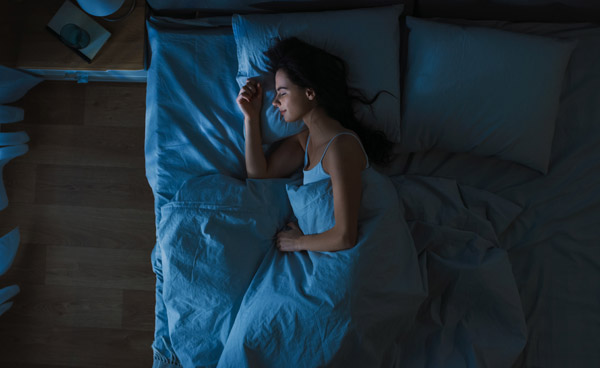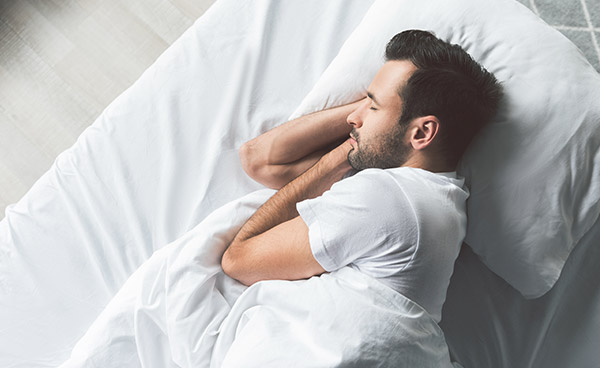Creating the right conditions for a good night's sleep can be your greatest contribution to the success of your obstructive sleep apnea (OSA) treatment. Here are several tips to help you do this gradually.
- Make sleep a priority. Adults should get 7 to 9 hours of sleep each night, and children should get 7 to 12 hours.
- Try as much as possible to go to bed and get up at the same time each day. A regular sleep routine helps set your "biological clock."
- Drink alcohol in moderation. Drinking large amounts of alcohol leads to poor sleep quality and an increase in the number of awakenings during the night.
- Maintain a healthy diet that will help you maintain a healthy weight, stabilize blood pressure and lower cholesterol. As you read above, these are risks for health problems already associated with your sleep disorder.
- Exercise regularly to encourage deeper sleep and fall asleep more quickly. However, avoid strenuous exercise 2 hours before bedtime as it may stimulate wakefulness.
- Go to bed only when you are drowsy and truly ready to sleep.
- If you suffer from anxiety, consult a healthcare professional, since uncontrolled anxiety affects sleep.
- Adopt a "pre-sleep" routine to help you relax and reduce stress, such as a warm bath, restful reading time, etc.
- Don't deal with your problems in bed. If necessary, make a "Worry List" before bed to help clear your mind and reduce your anxiety level that can interfere with sleep.
- Reduce your nap times. If you need to nap to stay alert, limit it to 20 or 20 minutes no later than late afternoon.
- Avoid falling asleep early in the evening by getting up and staying active if you are sleepy.
- Control your exposure to light. Try to reduce lighting just after dinner and limit computer use to the early evening hours.
- Use your bed only for sleeping or if you are sick, so avoid working, watching TV, eating or other activities in bed.
- Create an optimal sleeping environment that is dim, quiet and comfortable. If necessary, consider opaque curtains to block light or a blindfold.
- If necessary, use a "white noise machine" to help block out sounds that may bother you, so you can fall asleep and stay asleep.
- Maintain a moderate room temperature in your bedroom, as excessive heat can disrupt your sleep.
- Turn or cover any clock or alarm so that the dial cannot be seen at night.
- Avoid caffeinated beverages during the day and minimize alcohol, especially at night.
- Avoid smoking in the late evening, as nicotine often disrupts sleep.
- Do not sleep with your pets, as dogs and cats can disturb your sleep.
- To relax before bed, introduce muscle relaxation, deep breathing or yoga exercises in the evening.
- Avoid drinking more than you need to in the evening to minimize late-night visits to the bathroom.
- Take a warm bath an hour or two before bedtime, it will help you fall asleep more easily.
- If you wake up and start thinking, try counting slowly backwards from 500. Say each number slowly (in your head!), breathing in and out completely between each number.
- If you have been awake for more than 15 or 20 minutes, get up and do something quiet and restful.
- Talk to your doctor about any medications or supplements you are taking to assess how they may affect your sleep.
- f you have a strong urge to move your legs at night, you may have another sleep disorder called restless legs syndrome (RLS). It's treatable, so get help!
- If your partner also snores loudly and disturbingly, suggest a visit to his or her doctor to investigate a potential sleep disorder.




